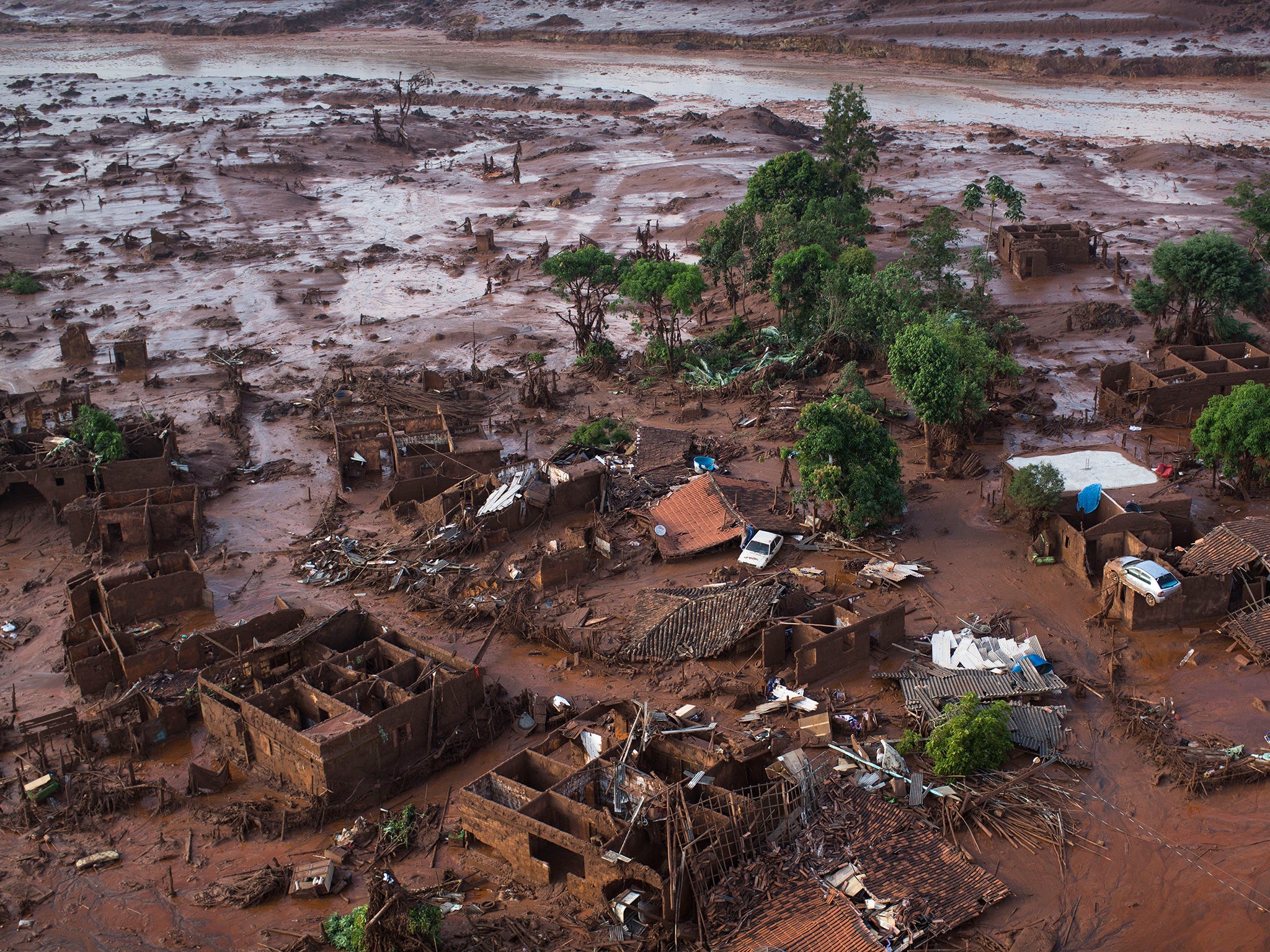BHP Billiton boss Andrew Mackenzie pay halved after Brazil dam disaster
The Samarco dam disaster in Brazil claimed 19 lives and caused widespread environmental damage

The chief executive of mining giant BHP Billiton had a pay cut of more than 50 per cent in the 2016 financial year on the back of the Samarco dam disaster in Brazil.
Andrew Mackenzie’s salary dropped from $4.58m (£3.53m) to $2.24m, with his base salary maintained at $1.7m.
He received no short term or long term bonuses.
The company said the Samarco dam disaster in Brazil, which claimed 19 lives and caused widespread environmental damage, was a “key consideration” in this decision.
“Financial year 2016 has been a very challenging year for the company – our remuneration outcomes reflect this and are aligned with performance,” said Carolyn Hewson, chairman of BHP’s remuneration committee.
The company reported a record $6.4bn annual loss in August due to the Samarco dam disaster and a commodities slump.
Even excluding $7.7bn in writedowns and charges, underlying profits slumped 81 per cent to $1.2bn for the year to June 2016 from $6.4bn a year ago, hit by weak iron ore, copper, coal, oil and gas prices.
“BHP Billiton is committed to doing the right thing to help those affected recover and to work closely with our joint venture partner, Vale, and the operator, Samarco, to achieve this,” Mr Mackenzie said in a note to shareholders.
Almost a year after the spill at the Samarco mine, owned jointly by BHP and Brazilian miner Vale, there is still no date for restarting operations, complicating attempts to restructure Samarco’s debt and increasing the possibility the miner may be allowed to run out of money.
The news came as BHP revealed it planned to contest a massive A$1bn (£582m) tax bill from the Australian Taxation over the price at which it sold commodities to its Singapore-based marketing business over more than a decade.
Additional reporting by Reuters
Subscribe to Independent Premium to bookmark this article
Want to bookmark your favourite articles and stories to read or reference later? Start your Independent Premium subscription today.

Join our commenting forum
Join thought-provoking conversations, follow other Independent readers and see their replies